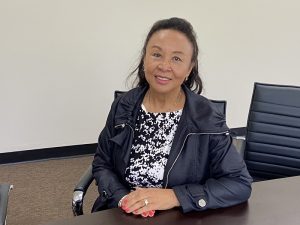The City of Los Angeles will celebrate Hapa Day on May 19 with a massive festival. The City of Los Angeles Department of Cultural Affairs announced on April 24 that it will host a large-scale celebration at City Hall on May 19 from 10 a.m. to noon to mark Hapa Day, which is celebrated as part of Asian Pacific American Heritage Month.
On April 18, the LA City Council unanimously adopted a resolution designating May 19 as Hapa Day. The day is intended to honor the multiracial children of Asian and non-Asian marriages, including those of Pacific Islander descent.
The term “Hapa” comes from the Hawaiian language, meaning “beautiful” and “cute,” and refers to people of mixed Asian and non-Asian ancestry. In Hawaii and other areas with a strong Asian presence, it is commonly used to refer to second-generation offspring of interracial marriage between Asians and other races, such as Whites, Blacks, or Latinos, instead of “mixed race.”
The organizers for the Hapa Day event are office of Mayor Karen Bass, councilmembers John S. Lee (12th District), Nithya Raman (4th District) and Heather Hutt (10th District), and the Asian American Pacific Islander Heritage Month Committee.

“We want to make it a day that welcomes future children with multicultural roots, and most importantly, we want to celebrate all Hapas, not just Korean Hapas, without discrimination,” said Legosky.
Legosky was born to a Korean mother and a black father. She spent her teenage years in South Korea and moved to Florida with her father when she was 15. Later, she moved to Southern California, where she met the Korean American community. Now, she lives in Hawaii with her husband, a retired engineer.
“I’m thrilled to be a part of this very meaningful resolution. Hapa Day is a day for second- and third-generation descendants of Asian ancestry to celebrate and honor their multicultural backgrounds, and it’s especially meaningful that the City of Los Angeles is able to recognize Hapa Day during Asian Pacific American Heritage Month,” said Councilmember Lee.
“My children are Hapa, too. I want my children to grow up proud of their Korean roots and identity, and as a Korean and Asian American myself, I will continue to work with the Korean American community on policies that will help our descendants grow up without discrimination and become the next generation of leaders in the City of Los Angeles.”
According to the Federal Census Bureau’s 2021 American Community Survey (ACS), the number of Asian Hapa residents in Los Angeles is 77,668, accounting for 15 percent of the city’s total Asian population (527,654, including mixed race). Of these, the Korean-American population is about 10,000. The number of Asian and Korean Hapas has steadily increased from 50,379 in 2011 to 55,645 in 2015 and 74,842 in 2019.
The Asian Hapa population has grown to a staggering 4.3 million across the United States. According to census statistics, the single Asian population is 19.15 million. However, if you include people of mixed race, the number is 23.54 million. That’s 15 percent of the Asian population with a multiracial background.
The total number of Korean American Hapas in the United States is 510,000, accounting for 30 percent of the total Korean American population of 1,962,084. Their social and economic power is as strong as that of the first generation. Most importantly, they are young, bilingual, and have risen to become a key part of America’s multicultural and inclusive generation.




![Deeper-I, Efinix sign deal to develop world’s first AI-FPGA single-chip solution Ikuo Nakanishi, left, vice president of sales at Efinix and Lee Sanghun, right, CEO of Deep-I pose for a photo after signing MOU on March 26. [Provided by Deeper-I]](https://www.koreadailyus.com/wp-content/uploads/2025/04/0401-DeeperI-100x70.png)

